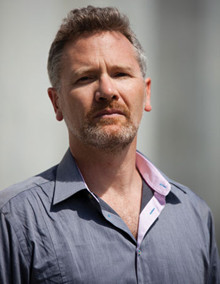In the postcrisis world, the Fund must move beyond its role as lender of last resort

In 2007, on the eve of the global financial crisis, the IMF was an organization under siege. Economist Barry Eichengreen called it a “rudderless ship adrift in a sea of liquidity.” Mervyn King, then governor of the Bank of England, warned that it was at risk of “slipping into obscurity.”
Its outstanding loans had shrunk to about $11.1 billion. The only significant new borrower was Turkey. As business dried up, so did sources of revenue. If the period of easy credit had continued, the Bretton Woods institutions might well have been reformed beyond recognition. But the crisis of 2008 ended that discussion. In the absence of any obvious alternative, the Fund became a critical part of the crisis-fighting effort.
The past decade has seen dramatic financial, economic, and political turmoil. It has been a good decade for the IMF. Today it stands alone as the only global financial crisis–fighting agency. It is amply resourced. Its expert staff is not merely a tool in the hands of creditors. Particularly during the euro area crisis, it demonstrated a striking degree of programmatic independence.
But not every crisis is good for the IMF. The fact that countries did not want to borrow from the organization before 2008 was not simply an effect of the economic upswing and the easy availability of private funding. Their reluctance was also powerfully motivated by the stigma the IMF acquired during the Asian financial crisis of 1997–98, when it was accused of imposing needlessly painful conditions on its borrowers.
In an attempt to respond to the criticism, the IMF set up its own watchdog, the Independent Evaluation Office. It pushed for fundamental reform of sovereign debt restructuring, but that proposal was abandoned in the face of fierce objections from the financial industry. The George W. Bush administration called for more action by the IMF on current account imbalances, hoping to exert pressure on China. But it soon became clear that the United States had no intention of allowing oversight and criticism of America’s own imbalances.
When the 2008 crisis hit, the IMF initially took a back seat. At least on the surface, in 2008 there was neither a balance of payments nor a currency crisis. It was not, in other words, an “IMF crisis.” In South Korea, which did suffer a disruptive devaluation of the won in fall 2008, the Bush administration ruled out any IMF involvement. The memories of the 1990s were too fresh. It was only when the shutdown in credit markets morphed into a sudden stop in emerging market funding that the IMF was called to action.
Division of labor
Tacitly a functional and political division of labor took shape. National authorities bailed out banks. Countries with large reserves, like Russia and China, self-insured. The Federal Reserve provided dollar liquidity directly to a core group of 14 central banks. The IMF provided facilities for other countries and made sure to structure its support in a minimally intrusive way, offering Mexico and Poland one of its new flexible credit lines.
The scale of crisis lending and the need to expand IMF funding had the healthy effect of forcing the Western incumbents and the rising Asian economies to come to terms over rebalancing quotas and voting rights. At the London meeting of the Group of 20 in April 2009, the IMF’s lending capacity was tripled to $750 billion.
Significantly, the IMF was both the chosen vehicle for global intervention on the part of the Obama administration and at the center of Chinese attention. When People’s Bank of China Governor Zhou Xiaochuan called for an alternative to the dollar-based currency system in March 2009, his proposal was based on special drawing rights, the IMF’s reserve currency, and took Bretton Woods as its inspiration. Germany also favored the IMF over European institutions as a vehicle for crisis fighting.
Dangerous ground
The IMF moved onto much more dangerous ground in 2010 when it joined the effort to stabilize the euro area. There was a rationale. The crisis was huge, in large part because of the inadequacy of Europe’s own crisis-fighting efforts, and it threatened to be systemically destabilizing. In spring 2010, the Merkel and Obama administrations combined to put the Fund at the heart of the first stabilization of Greece. Henceforth, the IMF became an integral part of the troika that managed the euro area emergency programs. It also added €250 billion in commitments to the euro area’s improvised financial safety net.
Altogether, the expansion of IMF activity from its low ebb in 2007 was dramatic. It boldly proclaimed that it was not simply returning to its old ways. Conditionality was less onerous and more adapted to local circumstances. The Fund’s criticism of fiscal austerity in 2012 caused a minor political sensation. Faced with the gigantic capital flows unleashed by the Federal Reserve’s quantitative easing and a chorus of criticism from emerging markets, the IMF backed away from absolute rigidity on capital controls.
The crises since 2008 have indeed been good for the Fund. But the question is whether any of the basic problems that led to the deep institutional crisis of the early 2000s have been fixed. On that score the answer is much less clear-cut.
At the high point of the global crisis of 2008–09, the IMF was in truth a bystander. The crisis did not revolve, as many had anticipated, around the market for US government debt. It was centered on the banking system and money markets. Such a crisis was vastly beyond the resources of the IMF. It required changes not only to fiscal and monetary policy, public sector administration, and labor markets—the familiar provinces of IMF programs—but to the functioning of financial capitalism itself. This was new terrain. The IMF has now moved into systemic monitoring of financial flows and balance sheets. But it is unclear how far this commitment goes. When the going gets rough, the Fund’s track record has been mixed.
Nowhere was this more evident than in Europe. Fund economists were early to spot the doom loop that entangled euro area banks and sovereign debt. While the Fund spoke of the need for European bank recapitalization, it did not impose its position on its European partners, nor did it decisively distance itself until the very final stages of the Greek crisis in 2015. As a result, it allowed itself to be sucked into a ruinous policy of extend-and-pretend.
Greece’s debts were eventually written down in 2012, but only as a last resort and to an inadequate degree. The main effect was to substitute official for private loans, which makes subsequent restructuring even more difficult. The only way out of this impasse is to revive the IMF’s campaign for orderly and routine restructuring. Otherwise, it will find itself endlessly repeating punitive, highly conditional workout programs.
Essential questions
Today, the Fund is facing a new type of politicization that dramatically raises the stakes: great power competition intertwined with large-scale intergovernmental lending.
That challenge invites some essential questions. At a time when the United States and Europe increasingly regard their relationship with China in terms of great power competition, how will the IMF arbitrate competing claims arising from lending under the Belt and Road Initiative in sensitive geopolitical flashpoints like Pakistan? How might this transform the issue of voting rights adjustment, the renewal of the funding streams put in place in 2009, and the choice of the next managing director?
In a world of massive private financial flows, with a profoundly lopsided and incoherent approach to public debt and mounting geo-economic rivalry, it seems optimistic to assume that every crisis will be good for the Fund. Instead, the Fund should learn the lessons of past decades and proactively advocate rigorous macroprudential regulation, a new sovereign debt restructuring regime, and the urgent priority of adjusting the balance of its quota and voting rights to reflect global realities.
Opinions expressed in articles and other materials are those of the authors; they do not necessarily reflect IMF policy.






